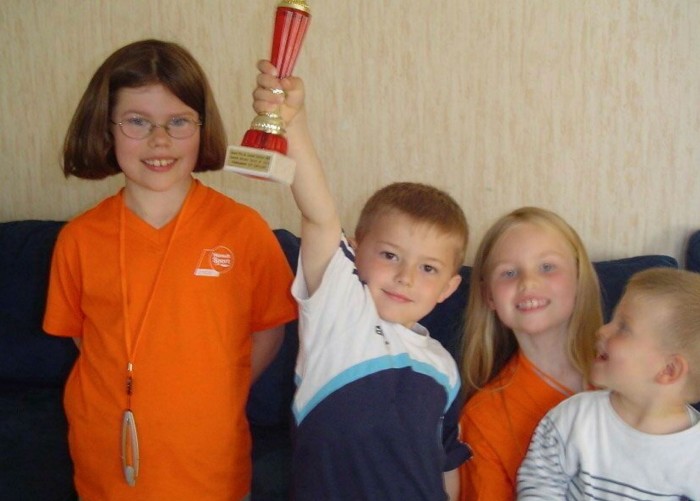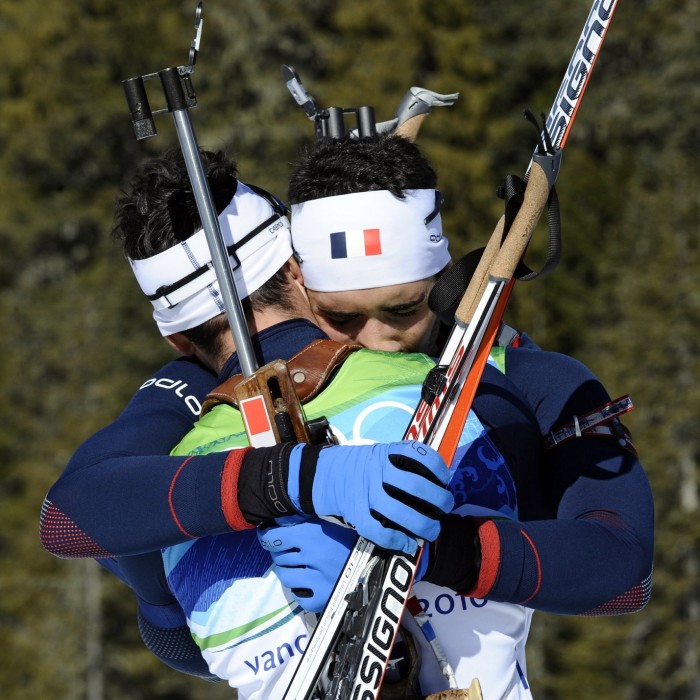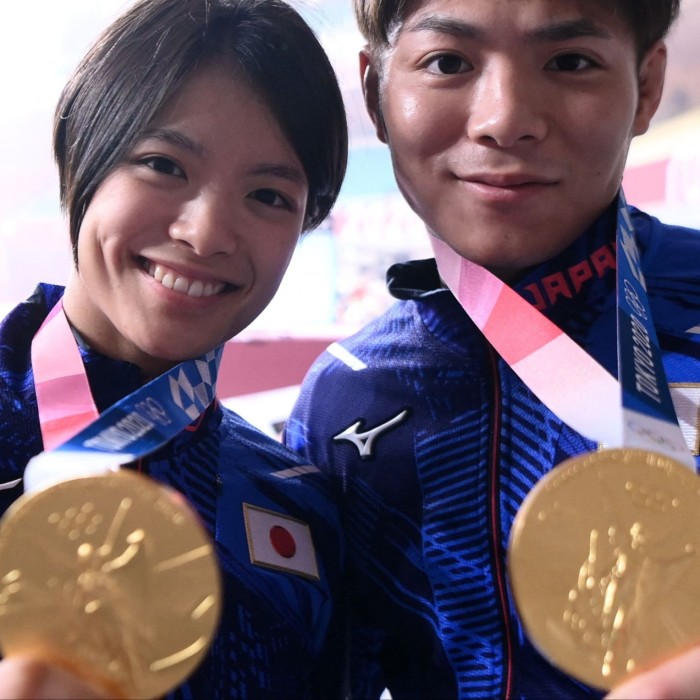
It can be difficult to tell brothers Alexis and Félix Lebrun apart — both blonde, pale and wearing black rectangular eyeglasses — except for when they are playing the Olympic sport of table tennis.
Ranked 16th in the world, the 20-year-old Alexis carries his paddle in his right hand, like a tennis player. But Félix, three years his junior and already ranking fifth, has a different technique, the so-called penhold grip pioneered by Chinese players who dominate the sport.
In the Paris Olympic Games, they are playing in the singles and have survived two rounds of matches, with both due to play again on Wednesday. Alexis is also playing mixed doubles. If the brothers prevail in their round of 16 and quarter-final matches, they could end up playing each other in the semi-finals.
The two have become Olympic darlings as people discover the quick-fire drama of ping-pong and French fans go wild for the pair.
They became stars in France, despite playing a relatively niche sport, after Alexis beat Félix in a tense six-set final of the French championships in March. Alexis jumped up on the table and roared in triumph while Félix burst into tears on the other side of the net — an image that made headlines and quickly spread on social media. They embraced soon afterwards.
Brotherly rivalry has made them relatable to many of their fans, as has their ability to quickly make up, with the older brother Alexis quickly praising Félix in a post-match interview on the court.
“It’s hard for them to face these matches since they have to forget the fact they are brothers,” said Dominique Lebrun, the mother of the pair, who come from a ping-pong family. Their father was a French champion and their uncle an Olympian. “As parents, we end up rooting for the one who loses,” she joked in an interview.
Competing siblings are surprisingly common in the Olympics — there are six pairs on the Australian and US teams alone at the Paris games. Experts say their success stems not only from shared genetics and physiology, but also from a family culture that encourages performance.
Coaches often have the brothers and sisters attend separate sports psychologists to help them manage the emotions and stress not only of competing, but also of competing against each other.
But the set-up also has advantages: having a sibling who excels at the same sport can be a big advantage in childhood, since they benefit from having a training partner always on hand, and can learn from each other. It also helps with the unglamorous parts of pursuing a sport, such as travel, logistics, equipment and training schedules.

From a very young age, Alexis and Félix would play together for hours and hours, which helped both to hone their skills, said their mother. When they began competing, they would travel together to tournaments.
Things can get more complicated when siblings reach the elite level, where athletes typically avoid sharing their skills and tactics with their rivals.
“It is fascinating to see siblings go head to head — it can be a real mind game of cat and mouse,” said David Fletcher, professor of human performance and health at the UK’s Loughborough University.
“The years and years of training and practice and knowing each other off the court ensures it is a unique context and contest. Form, rankings — everything can go out the window a lot more readily.”
Despite outranking him, Félix has never beaten his older brother in a big competition and has lost to him in two successive national finals. Asked by L’Equipe newspaper journalists whether Alexis had a kind of mental domination over him, Félix initially sidestepped the question by saying that his brother was “after all, a really good player”.
“At the beginning it was hard for me, but it’s gotten easier as we’ve competed against each other more frequently,” Félix said. “When I lose, I need about 10 minutes to get control over my emotions, and then everything goes back to normal.”


Alexis told Le Figaro newspaper on Monday that there was no rivalry: “For us, it’s always been natural . . . but it’s true that until now I’ve never lost to him, and it’s something that makes me proud.”
The brothers know each other’s games and techniques so well that their matches are unlike those against other opponents, said their mother Dominique. “They’ve recently each started seeing a sports psychologist, but I don’t ask them about their emotions about it all,” she said. “It’s better to let them have privacy to work it out.”
Other pairs of sporting siblings have fallen out. Martin and Simon Fourcade, both biathletes, were estranged after the younger Martin performed better than his older brother to win silver at the 2010 Vancouver Winter Olympics. Years later, Simon apologised publicly and their relationship recovered.
Tensions can be easier to manage when the siblings are not of the same gender so do not compete directly. UK brother and sister Tom and Emily Ford will both separately compete for rowing medals on Sunday. Japanese judo star Uta Abe was comforted by her older brother Hifumi Abe when she lost in an early round in Paris on Sunday.
For Tony Estanguet, the head of the Paris Olympics committee and three-time gold medal winner in the canoe slalom, beating his older brother Patrice to snag the only slot for the London games in 2012 was bittersweet.
“My brother was my idol and he helped me a lot as we trained,” he said. “He had already won a bronze medal in Atlanta so was the favourite to qualify, but I wanted that spot,” he told the Financial Times.
Once Patrice retired from the sport, he became Tony’s coach, so the pair trained, travelled and won together. Tony said: “Beating him was a breakthrough because once you’re capable of beating your older brother, you aren’t afraid of anyone any more.”